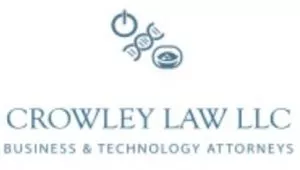- in Asia
- within Law Practice Management and Tax topic(s)
"Should I have my employees sign a non-competition agreement?" This is a critical and increasingly controversial question for many employers. With the legal landscape around non-competes in flux, understanding your rights and the enforceability of these agreements is more important than ever.
In this video, Phil Crowley, founder of Crowley Law LLC and a seasoned corporate lawyer, tackles the complexities of non-competition agreements (NCAs). He discusses the (then-current) proposed rules by the U.S. Federal Trade Commission (FTC) aiming to ban most non-competes and the potential for those rules to be challenged or overturned in the courts.
Phil breaks down the core aspects of non-competition covenants, including:
What they are: Agreements restricting employees from engaging in
activities that compete with their employer for a specific period
after employment ends.
The General Rule for Enforceability: For a non-compete to be
upheld by courts, it typically must be reasonable in:
Time: The duration of the restriction can't be excessively
long.
Scope: The activities restricted should be limited to those the
employee was genuinely engaged in and not overly broad.
Geographical Extent: The territorial limitation must be
appropriate to the business's actual reach (e.g., a local
business likely cannot enforce a nationwide ban).
Why Proper Drafting is Crucial: Courts regularly enforce
non-competition agreements that are carefully and reasonably
drafted to protect legitimate business interests.
The discussion highlights the importance of seeking knowledgeable
legal counsel to navigate this evolving area of employment law.
Properly structured agreements are key if you intend to use
non-competes to protect your business.
Please Note: The legal landscape regarding non-competition agreements, particularly concerning the Federal Trade Commission's rules, is subject to ongoing developments and legal challenges. While this video reflects the situation and analysis at the time of its recording, it's advisable to consult with legal counsel for the most current information and guidance tailored to your specific circumstances.
If you're an employer, founder, or innovator looking to protect your business interests, understanding the nuances of non-competes is essential.
The content of this article is intended to provide a general guide to the subject matter. Specialist advice should be sought about your specific circumstances.


